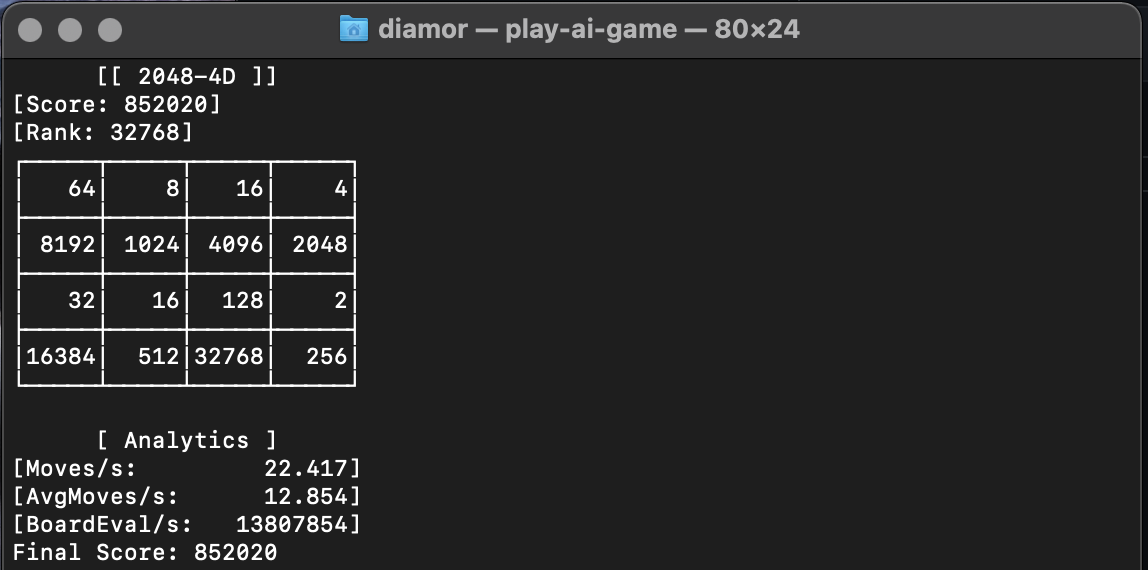AI for the game 2048-4D. This uses expectimax optimization, along with a highly-efficient bitboard representation of the board to search over 10 millions board states per second. Heuristics used include bonuses for empty squares, setting up merges, and bonuses for placing large valued pieces in the same 1-face (edge), 2-face (square) and 3-face (cube) of the hypercube that represents the board. Inspired by 2048-AI by @nneonneo.
- A C++ 14 Compiler
- CMake 3.17.3+ (probably works on some earlier versions of CMake 3.x)
- Terminal which supports ANSI Escape Codes for displaying board)
In a terminal, jump to the project root directory and execute:
cmake -S . -B build
cmake --build build
to build the project. Any relatively recent C++ compiler should be able to build the output. To run the game with default parameters execute:
bin/play-ai-game
To run the game with depth parameter (int) depth and minimum probability parameter (float) min_prob execute:
bin/play-ai-game depth min_prob
To run (size_t) n_games games with depth parameter (int) depth and minimum probability parameter (float) min_prob, outputting the results to folder (string) output_folder execute:
bin/run_many_games depth min_prob n_games output_folder
For comparison, to run a game with moves determined by Monte Carlo Tree Search with (int) n_sims random games per valid move, execute:
bin/play-mcts-game n_sims
After running 100 games with depth = 6, min_prob = 0.01, I observed the following performance:
| Tile | Proportion of games tile achieved |
|---|---|
| 2048 | 100% |
| 4096 | 98% |
| 8192 | 98% |
| 16384 | 96% |
| 32768 | 87% |
| 65536 | 15% |
I also observed the following statistics in the sample:
- Minimum Score: 36,924
- Median Score: 845,132
- Maximum Score: 2,212,500
